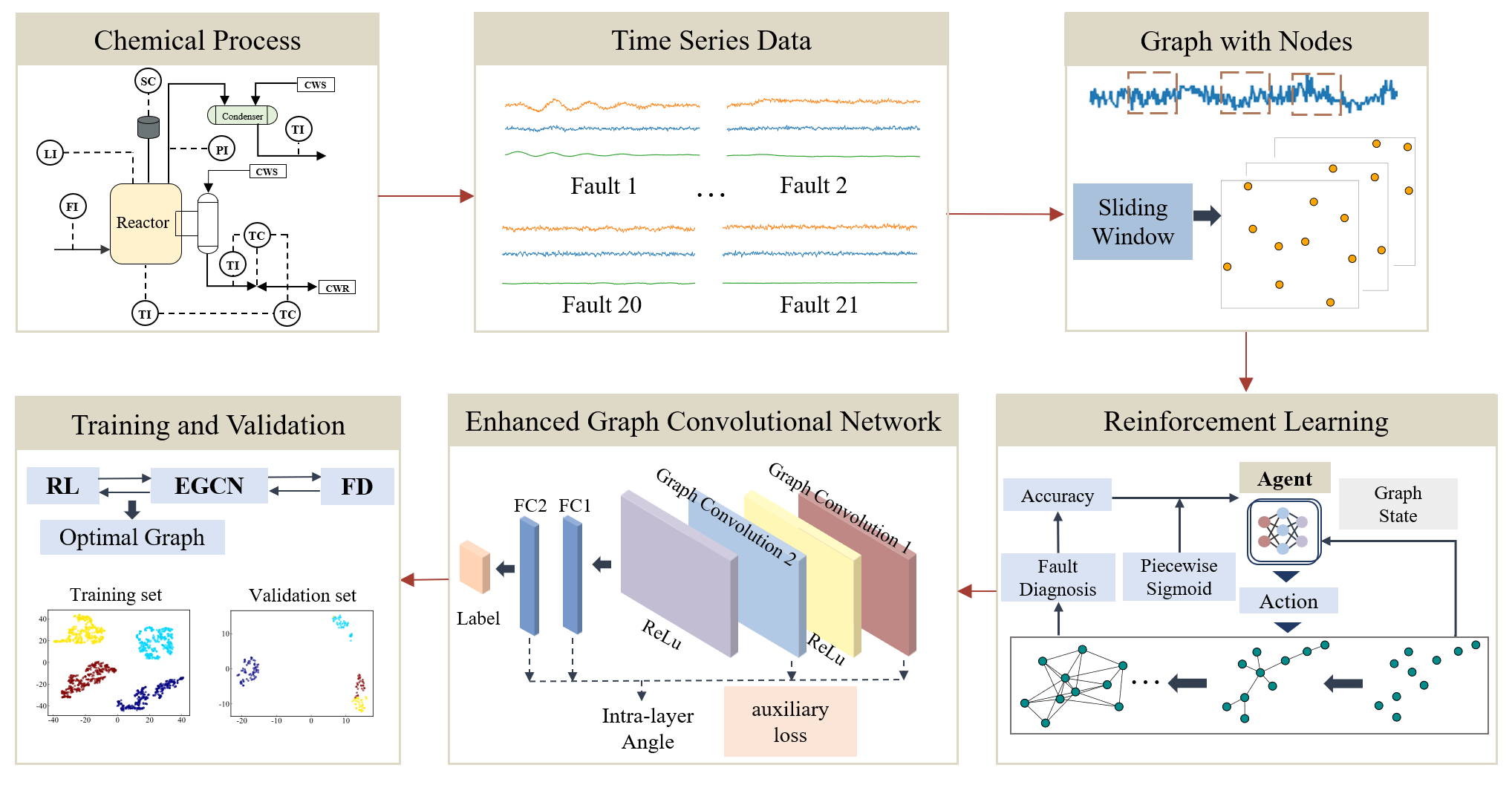Research team led by Professor Li Dazi from the College of Information Science and Technology at Beijing University of Chemical Technology has achieved significant progress in the fields of intelligent fault diagnosis and graph reinforcement learning. Their research paper, titled "Reinforcement learning driven adaptive graph construction for fault diagnosis of chemical processes," has been recently published in the renowned international journal Reliability Engineering & System Safety.
This journal is recognized as a Top-tier (Q1) journal in the Engineering Technology category by the Chinese Academy of Sciences (CAS) and boasts an Impact Factor of 11.0.
The corresponding author and supervisor of the paper is Professor Li Dazi. The first author is Ph.D. candidate Dong Caibo, with Professor Hamid Reza Karimi from the Polytechnic University of Milan, Italy, serving as a co-author.
Addressing the challenges of complex multivariate couplings and noise interference in chemical process data, the paper proposes a novel fault diagnosis framework named Graph Double Deep Q Network – Enhanced Graph Convolutional Network (GDDQN-EGCN). This method innovatively combines graph reinforcement learning for adaptive graph construction with an EGCN.
The approach utilizes reinforcement learning to dynamically optimize connection strategies within the fault graph, enabling the generation of node-distance-aware graph structures. Concurrently, it introduces an angular regularization mechanism into the GCN, enhancing weight diversity and the model's generalization capability. This allows for the accurate extraction of key fault features even under significant noise interference.
This research represents the first application of graph reinforcement learning to fault diagnosis in chemical processes, achieving synergistic optimization between the adaptive construction of graph structures and the feature extraction process. It significantly improves diagnostic accuracy and model robustness, providing a new solution for the intelligent fault diagnosis of complex industrial systems.
The publication of these findings marks another breakthrough for Professor Li's team at the intersection of intelligent manufacturing and graph reinforcement learning, offering new methodological support for building interpretable and highly robust industrial intelligent diagnosis systems.
Li Dazi is a Professor, Doctoral Supervisor, and Vice Dean at Beijing University of Chemical Technology. Her main research interests include machine learning & artificial intelligence, advanced control, fault diagnosis & safety assessment, and complex system modeling & optimization. She serves as an Editorial Board Member for the internationally recognized journal ISA Transactions and holds memberships in specialized committees of the Chinese Association of Automation. She has led over 30 research projects and has published more than 200 academic papers.

Link to the Paper:
https://authors.elsevier.com/a/1m0Wu3OQ%7Efl8wI
